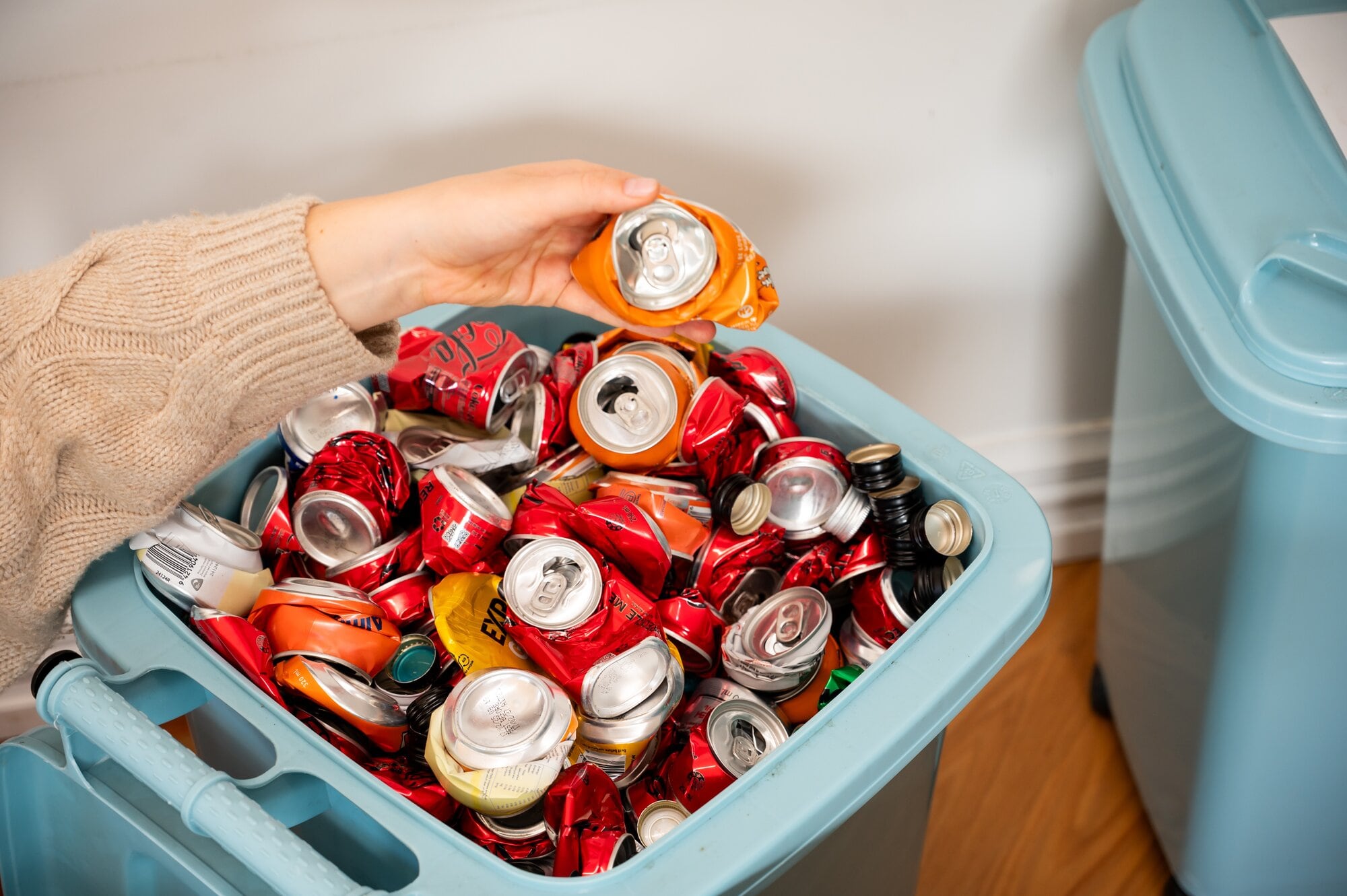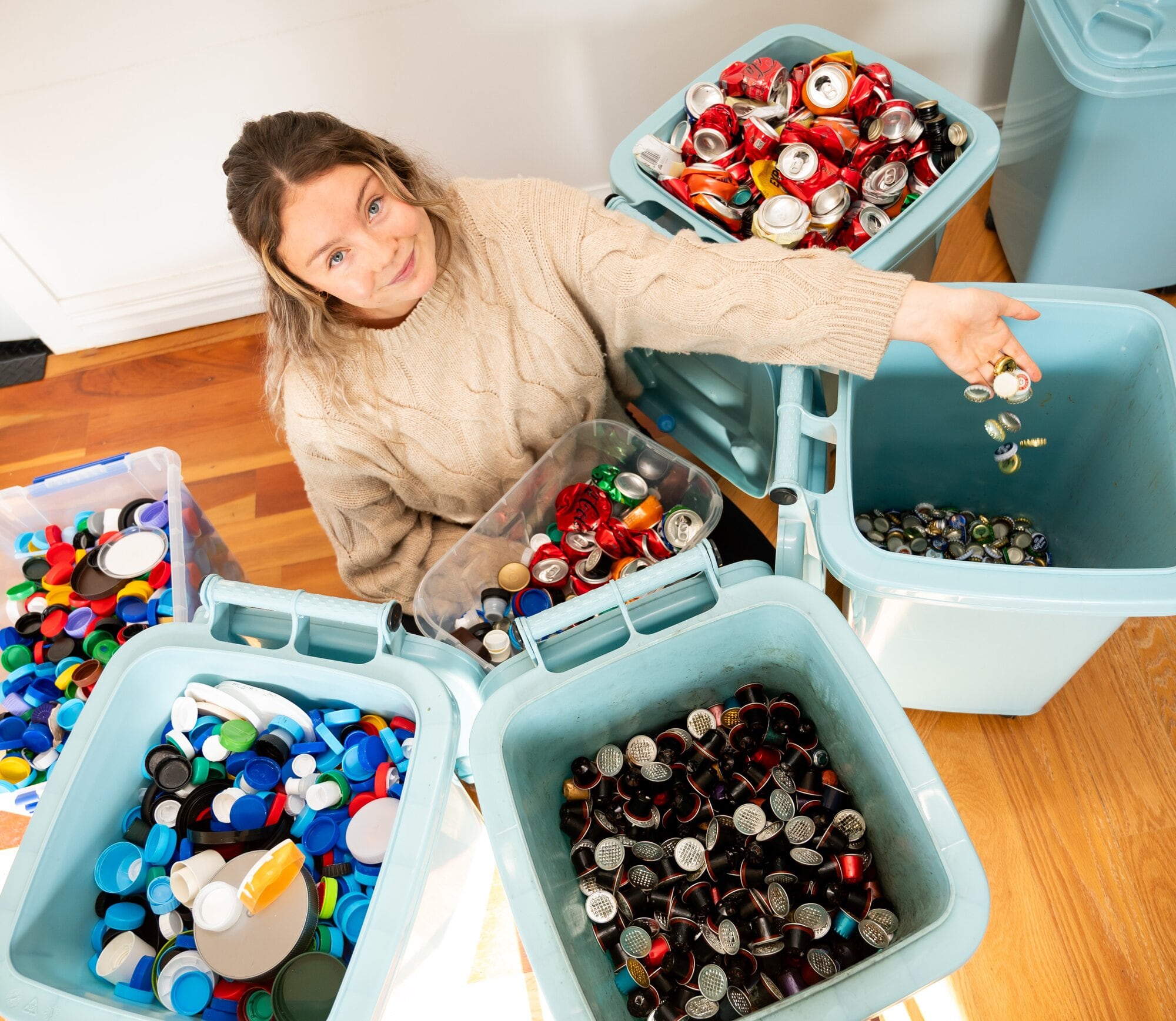Envirohub has hit 1.6 tonnes of recyclable materials diverted from the landfill so far this year at the Tauranga hub.
“In 2024, Envirohub diverted two tonne of recyclable materials from landfill,” said community co-ordinator Cathy Donnelly.
“At the halfway mark of 2025, we are already sitting at 1.6 tonnes and aim to smash three tonnes by the end of the year.”
This project aims to teach people that the recycling journey does not begin and end at the kerbside collection of bins.
Envirohub has a series of 18 collection points at its Glasgow St building.
Economic and environmental impacts
“Research shows that the average Kiwi is sending 734kg of waste to landfill annually, with a total figure of around 17.5 million tonnes a year in New Zealand,” said Donnelly.
“It is estimated that 30% of that figure are materials that could be recycled. At a rough guess, New Zealand has around 200 landfills and some are close to full, we will be looking for new landfill sites in years to come.”
Donnelly said the waste levy fund is rising, which means it is more expensive to send waste to landfill.

Envirohub has diverted 1.6 tonnes of recyclables from landfill this year. Photo / Brydie Thompson
It also creates a lot of environmental damage in terms of greenhouse gases and emissions, risk of water pollution from leachates – which degrades soil quality, affecting plant growth and disrupting ecosystems and ultimately the food we grow and eat – along with other risks like fire hazards and pest attraction, Donnelly said.
“While landfills are necessary for managing waste, they present significant environmental and health challenges.
“Implementing sustainable waste management practices, such as reducing, reusing and recycling, can help mitigate these impacts.”
Donnelly said they feel confident they will reach their target of three tonnes of materials diverted from the landfill by the end of the year.
“We are already on track at the halfway point of the year.
“The majority of people are supportive and enthusiastic, and we are seeing regulars coming to drop off recycling but also bringing more items that they have collected from friends, neighbours and work colleagues.”
Re:mobile
Re:mobile is the most recent collection point added to Envirohub.
“Mobile phones are a significant component of electronic waste, the fastest-growing waste stream globally.
“Improper disposal can lead to toxic substances like lead, mercury, and cadmium leaching into the environment, contaminating soil, water and air.”
Mobile phones contain valuable metals such as gold, silver, copper and palladium.
Recycling these devices allows for the recovery of these materials.
“In tough economic times, regardless of environmental consequences, who wants to throw something away that has value?
“My teenage son’s recent phone cost more than I paid for my first car. So, who wouldn’t want that to still have value at the end of its life/purpose? And sharing that resource and money with a charity is a win-win surely.”
Re:mobile is a project in collaboration with Sustainable Coastlines, an organisation Donnelly said aligns well with Envirohub.
“Sustainable Coastlines is a charity that protects the moana we all love by bringing people together to reduce plastic pollution and other litter.
“Their goal is to see 60% less litter on the coastlines of Aotearoa New Zealand by 2030.”
Donnelly said they intend to achieve this by empowering communities to take action for their local beach through coastal clean-up events, educational programmes, public awareness campaigns and litter data collection.
“Since Sustainable Coastlines partnered with Re:mobile in 2016, they have passed on the proceeds of donated mobile phones totalling more than $223,000.
“This money helps support the charity in their endeavours to educate around plastic waste in the oceans we all love.”

